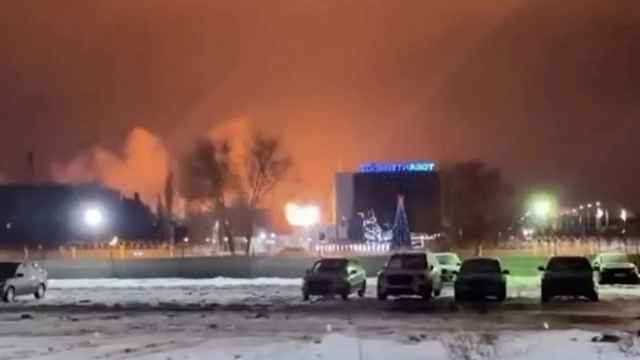After repeatedly being refused entry to Crimea, an unarmed OSCE military observer mission will instead go to other parts of Ukraine in the coming days, including the country's east, the European security body said on Tuesday.
Seventeen member states of the 57-nation Organization for Security and Cooperation in Europe, including the U.S., have so far confirmed they will take part in the changed mission requested by Ukraine, an OSCE spokesman said.
During the last attempt on Saturday to get into Ukraine's Crimea, which is now controlled by pro-Russia forces, warning shots were fired when the observer mission was turned back. Nobody was hurt.
It was the third straight day the OSCE mission had been turned back while trying to cross the narrow isthmus connecting the isolated Black Sea peninsula to the rest of Ukraine.
Russian forces have in little more than a week taken over military installations across Crimea, home to the Russian Black Sea Fleet.
The OSCE said Tuesday Ukraine had now requested a continuation of the mission's stay, this time to cover the south and east of the country.
Apart from the United States, countries that have said they will participate include Belgium, Canada, Estonia, Finland, Hungary, Iceland, Ireland, Italy, Lithuania, the Netherlands, Slovakia, Spain and Turkey, the statement said.
The OSCE spokesman said the mission had left the city of Kherson near Crimea to begin their work, which was expected to continue until March 16.
The spokesman did not rule out that the mission may try to visit Crimea — in Ukraine's south — again but suggested the expected final date of the mission did not have anything to do with the planned referendum in Crimea on joining Russia on the same day.
The mission is taking place under OSCE rules which allow for "voluntary hosting of visits to dispel concerns about unusual military activities", the OSCE said.
A Message from The Moscow Times:
Dear readers,
We are facing unprecedented challenges. Russia's Prosecutor General's Office has designated The Moscow Times as an "undesirable" organization, criminalizing our work and putting our staff at risk of prosecution. This follows our earlier unjust labeling as a "foreign agent."
These actions are direct attempts to silence independent journalism in Russia. The authorities claim our work "discredits the decisions of the Russian leadership." We see things differently: we strive to provide accurate, unbiased reporting on Russia.
We, the journalists of The Moscow Times, refuse to be silenced. But to continue our work, we need your help.
Your support, no matter how small, makes a world of difference. If you can, please support us monthly starting from just $2. It's quick to set up, and every contribution makes a significant impact.
By supporting The Moscow Times, you're defending open, independent journalism in the face of repression. Thank you for standing with us.
Remind me later.





